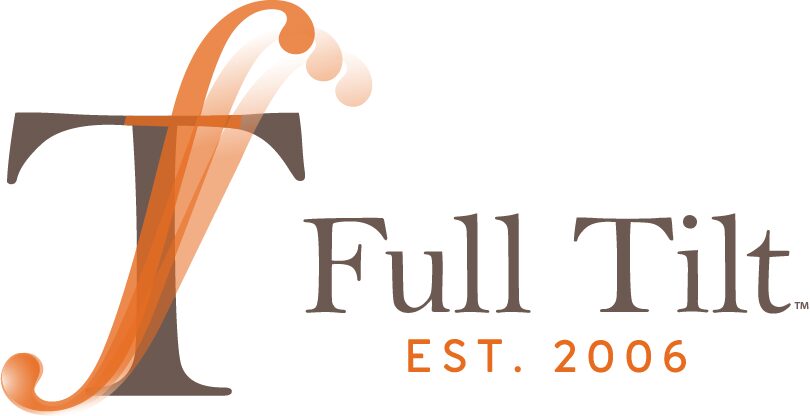icrosoft. Facebook. CrossFit. Ben & Jerry’s. These are all brands that have been integrally tied to the reputation of a single person (or duo), whether that has proven to be good or bad. Thousands of employees leverage their livelihoods on the image of a personal reputation and hitch their wagon to doing something good as part of a company that cares.
What happens if that individual damages the company reputation based on the choices they make, like the example of CrossFit Gyms in response to the Black Lives Matter movement? People leave, clients say no, advertisers abandon, founder is pushed out. What if they double down on their ethical practices and high moral compass when times dictate the need for meaningful dialogue, like Ben & Jerry’s, during the same time? People flock their way and recommit their loyalty.
These are headline-making examples, but it’s not just leaders of monoliths that impact their organizations by their choices. Charismatic and visionary individuals make excellent figureheads of any size organization, but anyone in a leadership position is vulnerable.
At the beginning of 2020, Edelman’s Trust Barometer revealed that despite a strong global economy and near full employment, none of the four societal institutions that the study measures—government, business, NGOs and media—is trusted. A growing realization of inequity is undermining trust. Then a pandemic hit followed by the escalation of the Black Lives Matter movement, both of which brought injustice to the very front of conversation.
Leaders Are Given a Voice – Use it Wisely
Great leaders have a clear sense of purpose and act with intentionality, but what makes them truly effective is their ability to share their vision among their teams, repeatedly, and with authenticity. They clearly stand for something bigger than themselves. And we NEED them right now.
Executive branding – the reputational strength of your most visible leader or leadership team – influences your company’s overall brand position in a number of ways. So, it makes sense for there to be a strategy in place that specifically defines, proliferates, and amplifies the executive’s leadership values. And while it may seem that a neutral approach to executive brand positioning isn’t hurting your business, it certainly isn’t helping.
Reputation management and crisis communications are specific disciplines within the corporate communications field that manage and address the far-reaching implications reputation can have on both internal culture and external brand. But too often, the focus only becomes paramount when a company is facing a competitive challenge, a leadership vacuum, or other threat to positive momentum. Instead, actively capitalize on the benefits a strong leader brings to the organization.
Executive Team Self Eval
Now is a good opportunity to ask: Even though our company’s offerings may be outstanding, is my own reputation an asset, an obstacle, or a neutral factor to a prospective employee, customer/client, or investor? The latter two are negative influences on the organization. Employees want to know the kind of person they are ultimately working for and what that person stands for – it gives them something (and someone) to rally behind. Similarly, customers will show support with their dollars. Silence or inaction is no longer an acceptable position of neutrality, and executive teams can no longer expect societal issues to stay out of the workplace.
In a previous article on Reputation Matters, I wrote on the importance of leader self-reflection to determine if your reputation matches your character, and if not, what steps you can take to align them. Now, it’s time to look at those elements of your character or those of your company’s leadership team that translate to business success and determine how to leverage them best.
Conduct a self eval that includes these questions and reflection points to help identify opportunities for improving or building your executive brand. They are divided by personal motivations and work-related purpose, as the lines between the personal and the professional are increasingly blurred, and some are purposely broad:
Personal motivations:
1. What are three values you believe are most important in the way you live and work? What are three words that describe you? What are three words you want to describe you?
2. What is a particular area of expertise you are or want to be known for? Do you welcome feedback and input on your ideas?
3. What does a good day look like for you? What does a crappy day look like?
4. When was the last time you felt personally challenged to grow? What was a time you stepped out of your professional comfort zone?
Work-related purpose:
5. Do you find yourself more often getting in front of issues that arise or reacting to them? (These relate to organizational pressures as well as societal.) How long does it take the leadership team to assess, analyze, communicate, and act?
6. How often do you connect one-on-one with employees outside the leadership team? This is for a conversation with no agenda, just listening and understanding that person on a human level. Do you feel comfortable in this environment?
7. How often does the executive team communicate to stakeholders about your strategic focus and actions? Is it on a regular cadence or sporadic/episodic? Is the communication from “the company” or you personally?
8. How active are you in a professional capacity outside of your organization? In what areas and with whom?
It is important to get to the heart of what makes us tick personally and professionally by distilling down this self-discovery. It will lead us to appreciate our true self and allow us to build from there versus fabricating a persona we will never be able to sustain as our brand. We are who we are and there’s beauty in that.
In the third part of this series, we will tackle the process of defining and operationalizing an executive brand by identifying key traits and forming a plan for expanding your reputation and brand of leadership.
Whether you’re a business leader or an executive team looking to accelerate business goals and hire top talent, actively managing your executive branding can be an essential part of the path to sustained success. We really do need enlightened leaders now more than ever. For a leadership team or individual executive branding consult, contact me at (404) 388-7047 or lisa@fulltiltconsulting.com. If you missed the first article in this series, take a look at Reputation Matters: Think no one is looking? That’s a mistake.
This post originally appeared on LinkedIn.

Here is Lisa Tilt’s second “Reputation Matters” installment on executive branding. The state of the world is commanding strong leadership. Now is the time to ask ourselves: “Through the eyes of an employee, customer/client or investor, is my own reputation an asset, an obstacle, or a neutral factor to the company?” The latter two are negative influences on the organization, so let’s talk about nailing down your brand of leadership.

